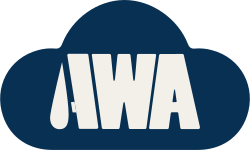By Reece Young, Grace Adams, Alex Erickson, Aryan Dhar, and Andrea Caceres.
In August 2020, just one week away from officially becoming ‘Munk Twos’, our MUN105 Lab Group (SDG 1: No Poverty) was lucky to win the Munk One Dragons’ Den competition. Saying we “won” feels sort of weird. It’s true it was a competition, and it’d be a far-cry from fact to say Munk One students aren’t competitive, but there was a mutual respect in the (virtual) air that all of these projects would make the world a better place. This year in particular marked the inauguration of the Carey Projects, which provides the initial funds for our project and facilitates our team’s mentorship with Audacious Futures. The Carey Projects was named to honour Munk One Alumnus Carey Davis, and while none of us had the honour of meeting Carey, her relentless care, curiosity and audacity is delivered by the project itself. We all learned a lot through the process, and felt our passions and capabilities emboldened, but this year, maybe more than most, the name of the project kept us grounded to an important truth: it was never about us.
Tasked with an intervention targeting the ‘No Poverty’ SDG, we pitched an idea to make Ihuanco a better place. Ihuanco is a coastal settlement in Peru, where its citizens, like 8 million other Peruvians, lack access to safe and drinkable water, entrapping the community deeper into the throngs of poverty. You might be thinking what can five, albeit deeply caring, but expectedly inexperienced second year students do to provide safe and drinkable water to a community 5900 kilometres away? Truth be told, not much — at least not on our own. It takes meaningful collaboration with stakeholder-experts, local government, and most importantly, the community of Ihuanco. To emphasize this point, we call ourselves Awa, the slang-phonetic of the word “agua” (water, in Spanish) within Peru, where our team-lead, Andrea, is currently based. We chose this name to ground us and remind us that our project is and should always remain locally driven.
Here is the pitch: Acknowledging that poverty is not always monetary, but a state of deprivation, we want to harvest fog to collect drinkable water for the community in Ihuanco. So, how does this work? Fog harvesters utilize a system of mesh nets to condense suspended water molecules in the air. The nets are usually at least a metre squared in area and must be erected perpendicular to the direction of the wind. As the wind blows the fog through these nets, gravity pulls the water droplets down to a collector. This apparatus has been tried and tested in several remote areas and requires no supervision except when the water is to be collected. Collected water can then be easily filtered using a specific apparatus to provide clean and drinkable water to remote communities like Ihuanco. Recalling back to our first post-Dragons’ Den call in September, we had the ambitious goal to have our first fog catcher in the community by December. The goal remains ambitious and present, but we have learned international interventions take time. Ethics takes time. Websites take time. Fundraising takes time. Registration an NGO takes (a lot of) time. People take time, especially during a global pandemic.
What else have we been doing with that time? Frankly, a lot more learning. From Susana, Gov. of Ihuanco, we hear stories from the community itself, teaching us the power of resilience and kinship in these challenging times. We are also receiving formal mentorship from Audacious Futures, which includes learning the ins and outs of project management. Crucially, we have also been connecting on deeper levels with our expert partners in Peru and the locality of Ihuanco to make sure Awa’s implementation is sustainable, efficient, and actually satisfies the community’s needs. In mid-November, Andrea will be visiting the community to perform various tests in fog levels, water quality, and water production levels, to answer lingering questions about how the technology can be applied specifically to Ihuanco’s context. We believe in what we are doing in Ihuanco, and because of that, donating our time is the easy part.
Now I know we said it isn’t about us, and we mean it. But for the sake of transparency, who is Awa anyway? Grace Adams (studying Peace, Conflict and Justice and Ethics, Society, and Law) is our Director of Marketing, working on general communications, website design and other project branding. Alex Erickson (studying Economics and International Relations) is our Finance Director, working on budgeting and internal operations. Aryan Dhar (studying Computer Science and Economics), is our CIO (Chief Information Officer), focusing on technology design, budgeting, and selection. Reece Young (studying Philosophy and Economics), is our Fundraising Director, working on fundraising, outreach and online content. Andrea Caceres (studying Diaspora and Transnational Studies and Human Geography) is based in Peru and is working in a CEO role, leading internal operations, working with the community in Peru, and keeping consistent communications with all stakeholders involved.
Often, problems already have solutions, but the bridge has never been built, and the problem is allowed to persist. On one side of the valley: there are fog catchers, on the other, Ihuanco. We are innovating the needed new links between solutions and the most vulnerable. In other words, we are the bridge makers.
